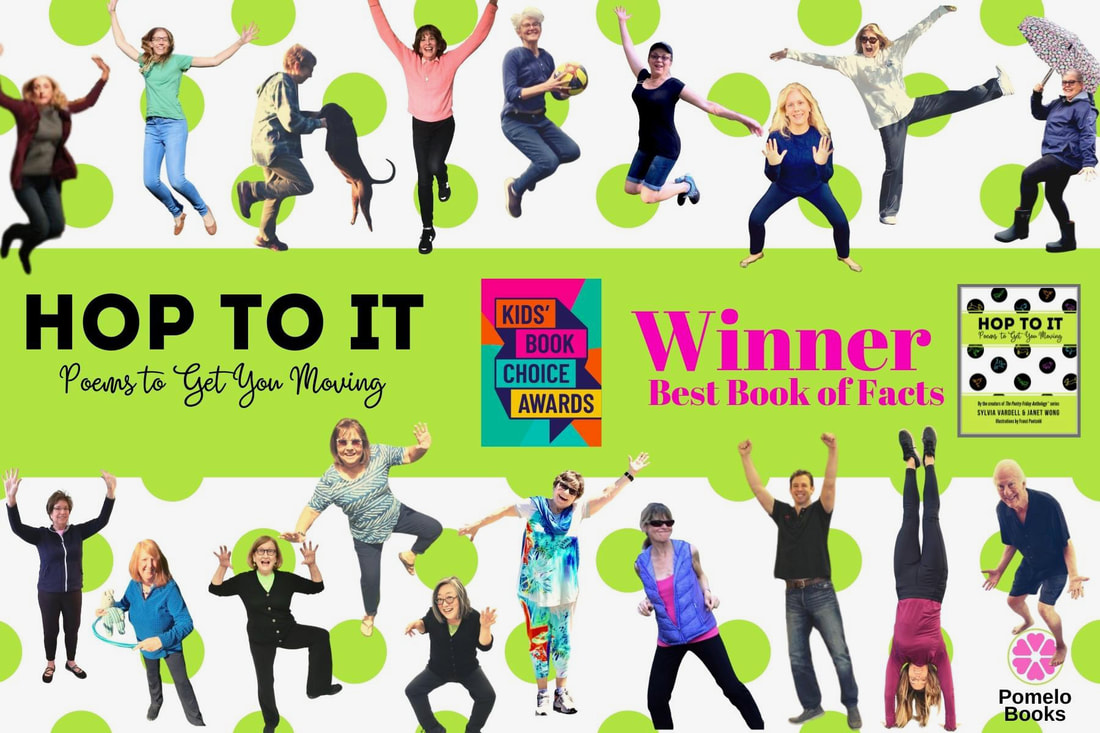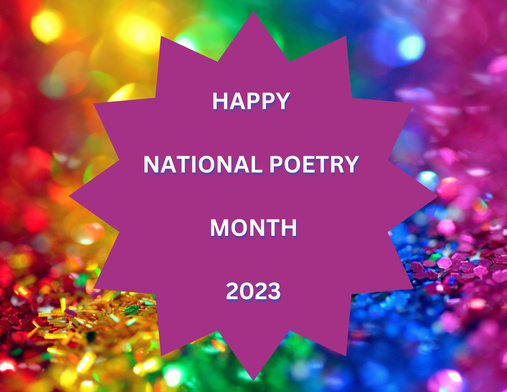 It the Eve of National Poetry Month! Mary Lee at A(nother) Year of Reading is hosting and sharing what her month of poetry will be: Cheritas! I am once again working with Anne Irza-Leggat, Candlewick Press to bring four interviews for Poetry Friday. Anne has graciously offered to send a book to a lucky commenter. Today I have a wonderful interview with Elizabeth Bicknell, longtime editor for Paul B, Janczko. His final collection, Where I Live, was published on March 14, 2023. It explores a the places and spaces of where we live. 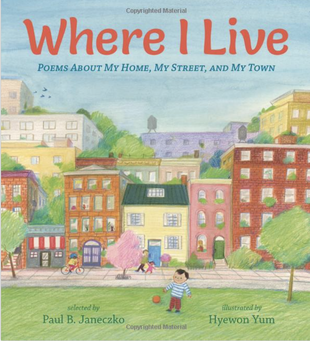 JRM:How long were you Paul B Janeczko’s editor? LB:I started working with Paul back in 1996, when I was still at Harcourt Brace. When I moved to Candlewick Press in 1997, I brought him with me, and we published the anthologyVery Best (Almost) Friends, illustrated by Christine Davenier. Lovely to have started with a collection of poems about friends, since that is what we became over twenty-plus years, till his passing in 2019. JRM: Did you work with him on Requiem: Poems of the Terezin Ghetto? LB: I edited nine of Paul’s books. Seven of them were anthologies, including two of my favorites--A Poke in the I and A Kick in the Head, both illustrated by Chris Raschka--and two were his own, longer collections of poems, such as Requiem. The other one is Worlds Afire, poems about a circus fire in Hartford, CT, 1944. Both of these collections (Paul refused to refer to them as verse novels) are powerful meditations on terrible events, focusing on individual experience. He made history vivid in that way. PBJ, as we called him in-house, was an excellent poet, teacher, and appreciator of poetry. I learned so much from him. JRM: I’m curious. What are one or two things Paul taught you? LB: Paul taught me a lot about the various poetic forms. I knew the basics, like the haiku and the sonnet, but I didn’t really know the more complex forms—sestinas, villanelles, aubades! He also taught me that these rules—just like those of his beloved baseball—are actually exciting to know and enhance your experience of the “game.” JRM: How did he come up with the idea for Where I Live? LB: Paul had anthology ideas bubbling away all the time. He kept paper folders of printed poems, and when there seemed to be a collection forming, he’d email me and say, “Hey, Ducky, how about this idea?” I turned down some of them, which went on to be happily published elsewhere, of course. JRM: Janeczko passed away in 2019, I am curious as to where in the process of creating the book? Were all the poems selected? LB: Yes, nearly all of the poems were there. In winter 2019, we had just finished The Proper Way to Meet a Hedgehog--Paul saw the bound book a couple of weeks before he passed. After a little while, we put ourselves back together at Candlewick and opened the file on Where I Live. We added some poems, and then we began the search for an illustrator. JRM: What is the story about how this book will go into the world four years after Janeczko’s passing? LB: For me, personally, it feels very fitting that Paul’s last anthology should be about home. JRM: What kind of insight can you provide about how a poem gets selected for a collection? LB: There are so many aspects to this process. First and foremost, the anthologist selects poems that they love and which fit the theme they have chosen for the book. For most young anthologies, you’d want about 30 to 35 poems. As an editor, I look to ensure that the anthologist has selected a good variety of new poems as well as previously published poems; included a diverse collection of poets; featured a variety of poetic forms; considered age-appropriateness for content and comprehension; and, finally, understands the likelihood of obtaining permissions at a reasonable cost for inclusion. JRM: Could you share a little bit about the process for getting permissions? LB: Every poem—apart from those that are in the public domain and therefore free to use—needs a permission from the rights holder before it can be included in an anthology. The rights holder could be the poet, the poet’s estate, the poet’s agent, or a previous publisher of that poem. The anthologist’s job is to track down who owns the rights to the poem. Then, the anthologist will give the rights holder the details of the book where the poem will appear. The rights holder will want to know whether the book is hardcover, softcover, e-book, or all three, and where it will be published. They will probably ask for the retail price and the print run. Then they will ask for a fee, based on that matrix of information. JRM: Readers are always interested in the arc of a poetry book. My guess is that the sections go from the innermost circle of “Home” to the larger circle of “Town/” What does that look like to decide the arc and order of a book? LB: This is definitely a fun part of the process! In Firefly July, we divided the poems into seasons. In Where I Live, we decided to expand the horizon from the home to the neighborhood and beyond, as you surmised. Since we wanted to include urban, suburban, and rural neighborhoods, there was a fair amount of futzing, i.e. moving poems in and out of sections till we were satisfied that Paul would have been happy with the collection. Then my colleague Carter Hasegawa cleared the permissions on Paul’s behalf. JRM: What is your favorite memory of Paul B Janeczko? LB: I have so many, but hearing him rave (or rant) about his beloved Red Sox was always fun! Classic Found Poem Palooza Almost Here!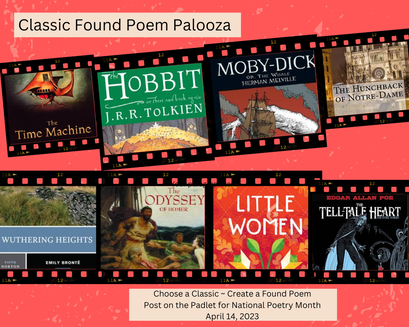 On Friday, April 14. I am hosting Poetry Friday and the Classic Found Poem Palooza. Here's the Padlet link to upload your poem. I have put a permission to upload on it as I want to protect the space. 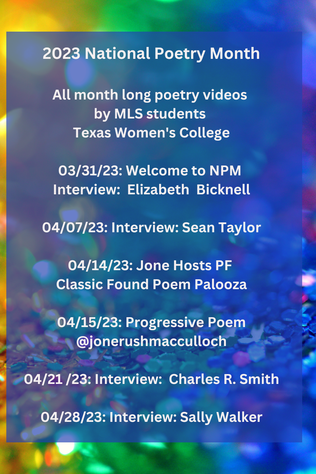 Come back tomorrow and enjoy the first of the month long poetry videos created by the students of the Texas Women's College, Poetry for Children and Young Adults! 'They are fun, thoughtful and will be perfect for a poetry break. Thanks to Sylvia Vardell for pointing me toward this opportunity. Also a huge thanks to the poets who donated a poem to the project.
Mary Lee
3/31/2023 01:14:07 pm
It makes my heart happy to know that you and Anne are working together! Two of my favorite people! 3/31/2023 04:00:32 pm
That is a lovely interview. One of my favorite lines from Elizabeth is: "LB: For me, personally, it feels very fitting that Paul’s last anthology should be about home." And I like that "he’d email [her] and say, 'Hey, Ducky, how about this idea?'" 4/1/2023 04:36:39 am
Thanks for this interview. Firefly July is one of my all-time favorite anthologies. I can't wait to read Paul's final anthology <3 Also, I was a Cybils judge the year Requiem won, and that book broke and mended my heart. Bits of it still come to me. What a legacy he left. 4/1/2023 02:41:10 pm
Jone, this is a wonderful interview. Like Denise, I enjoyed the line, "For me, personally, it feels very fitting that Paul’s last anthology should be about home." That is a touching line. Good luck with all your projects. I plan on being there on the 14th. 4/2/2023 09:37:26 am
Thanks for the wonderful interview with Elizabeth & Paul Janeczko's new book. I just requested it from my library. Another of his was just donated to the used bookstore where I work, "Wherever Home Begins" so I imagine there's a connection, haven't started it yet. And thanks, Jone for the coming Poetry Palooza, sounds like fun! 4/2/2023 08:09:19 pm
Jone, It was really nice to read this interview about Paul. I enjoy so many of his anthologies; I had just finished THE PROPER WAY TO MEET A HEDGEHOG. I look forward to WHERE I LIVE. And, am looking forward to 4/14 and the Found Poem Palooza!
Linda Mitchell
4/5/2023 05:05:13 am
Jone, I so enjoy your questions...you ask the things I really want to know about. I love that nickname, PBJ and that he'd rant about the Red Sox. A wonderful interview. I'm off to explore your padlet. I'm on spring break and having fun! Comments are closed.
|
AuthorAll photos and poems in these blog posts are copyrighted to Jone Rush MacCulloch 2006- Present. Please do not copy, reprint or reproduce without written permission from me. Categories
All
Archives
July 2024
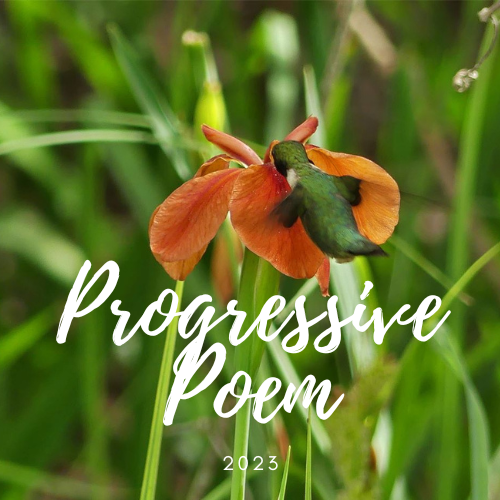
2023 Progressive Poem
April 1 Mary Lee Hahn, Another Year of Reading April 2 Heidi Mordhorst, My Juicy Little Universe April 3 Tabatha, The Opposite of Indifference April 4 Buffy Silverman April 5 Rose Cappelli, Imagine the Possibilities April 6 Donna Smith, Mainely Write April 7 Margaret Simon, Reflections on the Teche April 8 Leigh Anne, A Day in the Life April 9 Linda Mitchell, A Word Edgewise April 10 Denise Krebs, Dare to Care April 11 Emma Roller, Penguins and Poems April 12 Dave Roller, Leap Of Dave April 13 Irene Latham Live You Poem April 14 Janice Scully, Salt City Verse April 15 Jone Rush MacCulloch April 16 Linda Baie, TeacherDance April 17 Carol Varsalona, Beyond Literacy Link April 18 Marcie Atkins April 19 Carol Labuzzetta at The Apples in My Orchard April 20 Cathy Hutter, Poeturescapes April 21 Sarah Grace Tuttle, Sarah Grace Tuttle’s Blog, April 22 Marilyn Garcia April 23 Catherine, Reading to the Core April 24 Janet Fagal, hosted by Tabatha, The Opposite of Indifference April 25 Ruth, There is no Such Thing as a God-Forsaken Town April 26 Patricia J. Franz, Reverie April 27 Theresa Gaughan, Theresa’s Teaching Tidbits April 28 Karin Fisher-Golton, Still in Awe Blog April 29 Karen Eastlund, Karen’s Got a Blog April 30 Michelle Kogan Illustration, Painting, and Writing |
